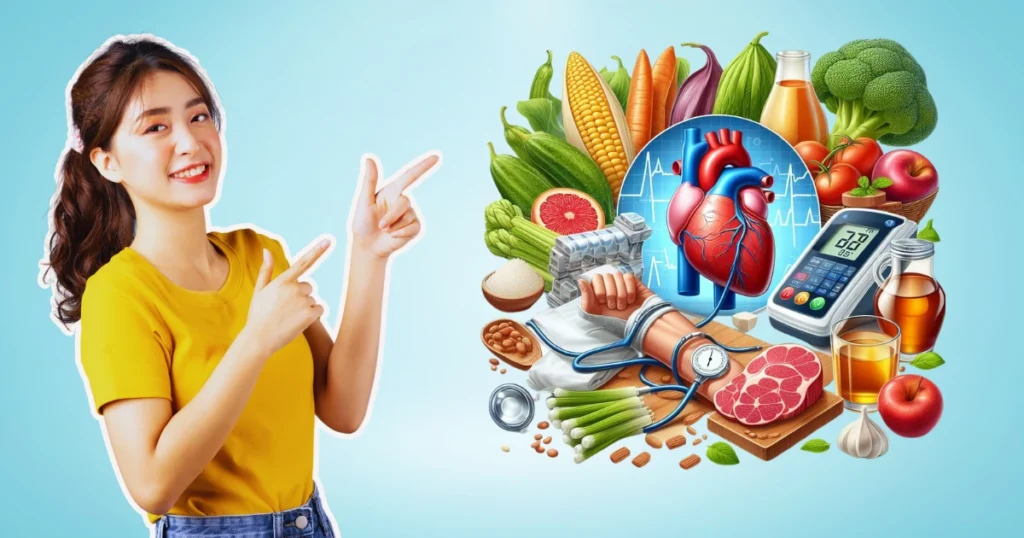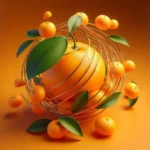
The most common cause of heart disease is hypertension, or high blood pressure, which is preventable.
There are over 1 billion people in the world with high blood pressure. A systolic blood pressure (SBP) reading of 130 mm Hg or more, a diastolic blood pressure (DBP) reading of 80 mm Hg or more, or both combined, are considered high blood pressure.
Making changes to your diet and way of life can also help lower your blood pressure and reduce your risk of developing heart disease. Angiotensin-converting enzyme (ACE) inhibitors are one type of medicine that doctors may also recommend to lower blood pressure.
Adding some foods to your diet, especially ones that are high in magnesium and potassium, may help lower your blood pressure.
These 10 things can help lower blood pressure.
Foods for high blood pressure
1. Salmon and other fatty fish
Large amounts of omega-3 fats, found in fatty fish, are very beneficial for your heart. Because they reduce inflammation, these fats may help lower blood pressure.
In 2022, 71 studies and health data from 4,973 people were examined to determine if there was a link between omega-3 fats from food or pills and high blood pressure. The amount of omega-3 fats that lowered blood pressure the most was between 2 and 3 grams per day, which is about a 3.5-ounce dose of salmon.
Eating more omega-3 fats, found in fish, may reduce the risk of high blood pressure in young people who have never had heart disease or diabetes.
2. Leafy greens
Two leafy greens that might help lower blood pressure are Swiss chard and spinach.
These leafy greens contain nutrients like magnesium and potassium that help keep blood pressure at a healthy level. One cup (175 grams) of cooked Swiss chard, for example, gives you 20% of your daily potassium needs and 36% of your daily magnesium needs.
Another study from 2022 found a 2.4 mm Hg drop in blood pressure for every 1 gram of extra potassium per day in women with high-salt diets.
Spinach contains large amounts of a plant chemical called nitrate. This chemical may help lower blood pressure. It also has a lot of vitamins, potassium, calcium, and magnesium, all of which are good for your heart.
An older study with only 27 people found that those who ate 16.9 ounces (500 milliliters) of a high-nitrate spinach soup every day for 7 days had lower SBP and DBP than those who ate low-nitrate asparagus soup.
High-nitrate leafy greens don’t appear to have the same effect on lowering blood pressure in newer clinical studies, so further research is necessary.
3. Nuts and seeds
It’s possible that nuts and seeds can help lower blood pressure. As part of a healthy diet meant to lower blood pressure, you can eat the following nuts and seeds:
- Flaxseed
- Pistachios
A lot of nuts and seeds have a lot of nutrients that are good for controlling blood pressure, like fiber and arginine. Nitric oxide, a chemical that relaxes blood vessels and lowers blood pressure, requires arginine, an amino acid.
Even though some studies suggest that eating nuts or seeds may help lower blood pressure, clinical studies have shown mixed results.
Scientists think that the different results might be because clinical studies that measure blood pressure and include nuts or seeds may not have been done for long enough to find out if they have any effects on lowering blood pressure.
As studies go on for longer, they may learn more about how nuts and seeds may lower blood pressure.
4. Berries
Berries are very good for you and may even help lower risk factors for heart disease, like high blood pressure. Berries are rich in antioxidants, such as anthocyanins, which are the chemicals that give them their bright color.
Anthocyanins can raise the amount of nitric oxide in the blood and lower the production of molecules that slow down blood flow. This might help bring down blood pressure. However, further human studies are necessary to confirm this.
Here are some foods that may help lower blood pressure:
- Strawberries,
- Grapes
- Chokeberries
- Cranberries,
- Strawberries
- Grapes
A 2020 review of clinical studies found that different kinds of berries, such as whole, freeze-dried, or juiced ones, lowered SBP by more than 3 mm Hg. Cranberry juice was the main ingredient that this study found to lower SBP.
5. Olive oil
The oil from the olive tree’s fruit is good for your health in many ways, including lowering blood pressure and other things that put you at risk for heart disease.
Olive oil can help lower blood pressure because it contains nutrients and plant-based substances like the omega-9 fat oleic acid and the antioxidant polyphenols. Studies examined in 2020 confirmed this.
6. Tomatoes
In tomatoes and tomato products, there are a lot of good things for you, like potassium and the carotene pigment lycopene.
There is a strong link between lycopene and heart health benefits, and eating foods that are high in this nutrient may help lower risk factors for heart disease, like high blood pressure.
According to a review of 21 studies, eating tomatoes and tomato products lowers blood pressure and may lower your risk of developing and dying from heart disease.
More research has shown that there isn’t a clear link between eating tomatoes and lowering blood pressure, so maybe we need more clinical studies.
7. Yogurt
Yogurt, a dairy product, contains large amounts of minerals like potassium and calcium that help control blood pressure.
A review of 28 studies linked eating three meals of dairy per day to a 13% lower risk of high blood pressure. A 5% lower risk of high blood pressure was associated with eating seven ounces (200 grams) more dairy every day.
A 2021 study also discovered a lower SBP in high blood pressure individuals who consumed one serving of yogurt per day. Those with normal blood pressure did not show the same results.
The researchers discovered a 1.44 mm Hg drop in SBP when they reduced daily yogurt consumption by one level. For people with high blood pressure, eating yogurt five to six times a week instead of two to four times a week may be beneficial.
8. Kiwifruit
There is a lot of vitamin C in kiwifruit, and it also has fiber, potassium, magnesium, and other nutrients that help control blood pressure.
They also provide you with various polyphenols and antioxidants derived from plants. That’s why scientists believe kiwifruit could help lower blood pressure and other things that put you at risk for heart disease.
In 2022, a study on 43 healthy Asian adults from New Zealand found that those who ate two kiwis for breakfast every day for seven weeks had a 2.7 mm Hg lower SBP than those who didn’t eat that food.
Kiwi may help lower blood pressure, but more research involving more participants over longer periods of time is required to be certain.
9. Carrots
Carrots are a popular vegetable because they are sweet, crunchy, and good for you. Carrots have a lot of plant-based chemicals that may help with health issues like keeping blood pressure in check.
A 2023 study found that eating 100 grams (about 1 cup) of grated raw carrots daily reduced the risk of high blood pressure by about 10%.
10. Amaranth
It’s possible that eating whole grains like amaranth can help lower your blood pressure. Studies have shown that eating a lot of whole grains may make you less likely to have high blood pressure. If you don’t like amaranth, you could also try these other whole grains:
- Whole
- Whole-grain bread
- Whole-wheat pasta
According to a review of 28 studies, the chance of getting high blood pressure dropped by 8% for every 30 grams more of whole grains eaten every day.
Amaranth is a whole grain that is very rich in magnesium. One cooked cup (246 grams) meets 38% of your daily magnesium needs.
Frequently asked questions
Q1: What kind of food quickly lowers blood pressure?
A1: One food can’t “quickly” reduce blood pressure. But eating a lot of foods that are high in certain nutrients, like potassium, may help keep blood pressure in a safe range over time.
Experts suggest the DASH diet for people with high blood pressure or who want to maintain their numbers at a healthy level. Fruit, vegetables, and whole grains are some of the foods it contains.
Q2: Is it true that water lowers blood pressure?
A2: Even though drinking water won’t lower your blood pressure right away, it’s important to stay hydrated to keep your blood pressure at a healthy level. Water allows you to meet your daily water needs.
Q3: Do bananas make blood pressure go down?
A3: Bananas contain potassium, a mineral that helps control blood pressure. Eating bananas won’t lower your blood pressure, but they can help you get more potassium every day.
Q4: Which items should individuals with hypertension avoid?
A4: Consider restricting or avoiding foods that are rich in sodium, added sugars, and saturated fat if you have hypertension. Additionally, you may substitute leaner types of meat for fattier ones.
The bottom line
In conjunction with other changes to one’s lifestyle, a nutritious diet can substantially reduce blood pressure and the risk of developing cardiovascular disease.
If you wish to maintain healthy blood pressure or have hypertension, incorporating a few of the foods listed in this article into your diet may be beneficial. It is advisable to consult a physician or registered dietitian prior to implementing substantial modifications to one’s dietary regimen.


